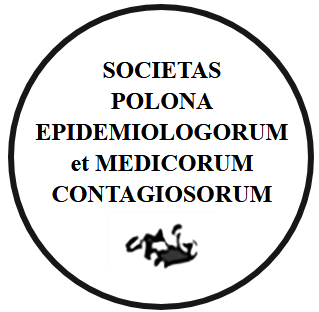RESEARCH PAPER
Outbreak of Legionnaires’ disease in Rzeszów in 2023
1
Kolegium Nauk Medycznych, Uniwersytet Rzeszowski, Polska
2
PSSE w Rzeszowie, Powiatowa Stacja Sanitarno-Epidemiologiczna w Rzeszowie, Polska, Polska
3
WSSE w Rzeszowie, Wojewódzka Stacja Sanitarno-Epidemiologiczna w Rzeszowie, Polska
These authors had equal contribution to this work
Submission date: 2024-02-26
Final revision date: 2024-05-07
Acceptance date: 2024-05-07
Online publication date: 2024-05-08
Publication date: 2024-06-07
Corresponding author
Adam Sidor
Kolegium Nauk Medycznych, Uniwersytet Rzeszowski, Aleja Rejtana 16c, 35-959, Rzeszów, Polska
Kolegium Nauk Medycznych, Uniwersytet Rzeszowski, Aleja Rejtana 16c, 35-959, Rzeszów, Polska
Przegl Epidemiol 2024;78(1):44-55
KEYWORDS
TOPICS
ABSTRACT
Background: Legionnaires' disease is a type of severe pneumonia caused by Legionella bacteria. The case fatality rate in this disease is 5-10%. People with various comorbidities, smokers and the elderly are at greater risk of developing the disease. Objective: The aim of the work is to present the results of an epidemiological investigation into the outbreak of Legionnaires' disease that occurred in the city of Rzeszów and the surrounding area in August and September 2023 and to present the threat related to the presence of Legionella bacteria in water supply installations and networks. Material and methods: The material for this publication was data from an epidemiological investigation conducted in the outbreak of Legionnaires disease in Rzeszów in 2023. Results: Epidemiological investigation revealed 165 cases of Legionnaires' disease in the outbreak, including 152 confirmed cases and 13 probable cases. The case fatality rate in a legionellosis outbreak was 15%. Environmental tests were carried out in residential and public buildings and industrial installations during the investigation. As part of environmental tests, 187 water samples were collected, including 87 warm water samples. Conclusions: The outbreak of Legionnaires' disease in the city of Rzeszów draws attention to the potential threat from the Legionella bacteria to the health and life of especially elderly people suffering from chronic diseases. The environmental tests carried out confirmed the highest number of Legionella bacteria at medium and high levels in water samples taken in the private apartments of sick people. Despite the lack of strict legal regulations clearly specifying the obligations regarding periodic disinfection of internal hot water supply installations, cooperation with their owners should be undertaken to enforce plans and actions in this area.
Share
RELATED ARTICLE
We process personal data collected when visiting the website. The function of obtaining information about users and their behavior is carried out by voluntarily entered information in forms and saving cookies in end devices. Data, including cookies, are used to provide services, improve the user experience and to analyze the traffic in accordance with the Privacy policy. Data are also collected and processed by Google Analytics tool (more).
You can change cookies settings in your browser. Restricted use of cookies in the browser configuration may affect some functionalities of the website.
You can change cookies settings in your browser. Restricted use of cookies in the browser configuration may affect some functionalities of the website.





